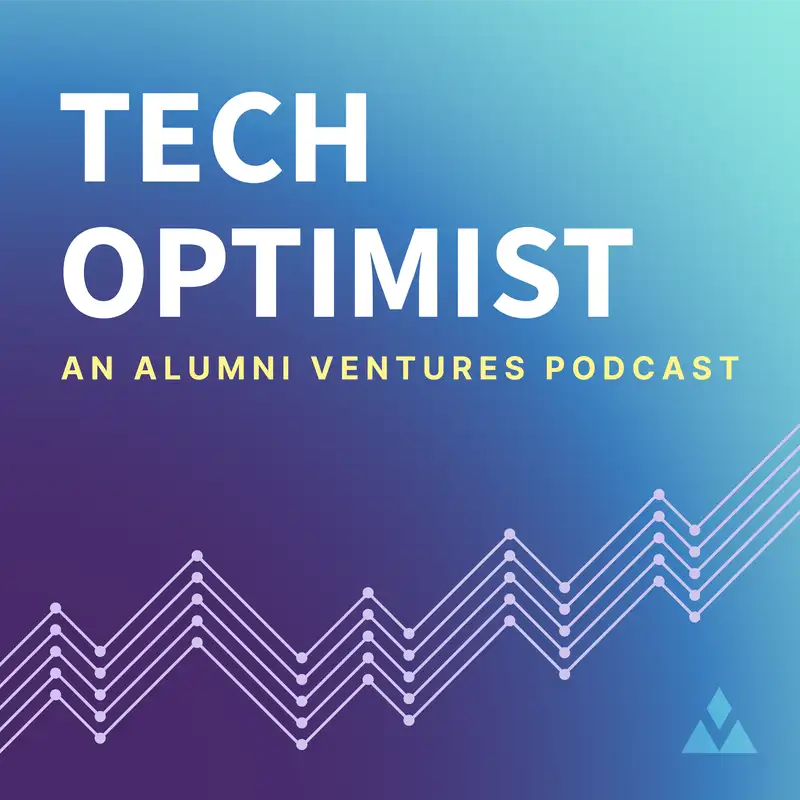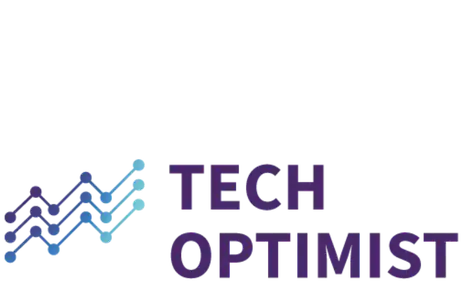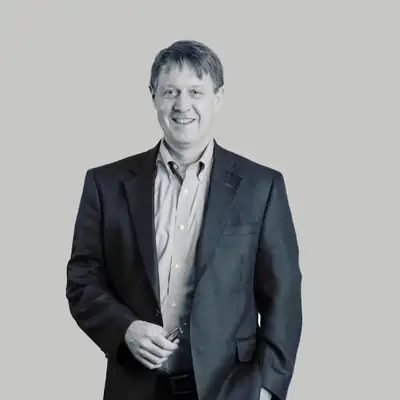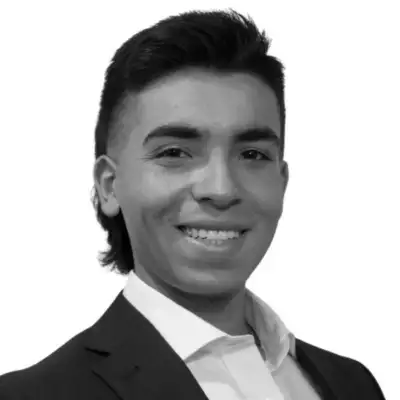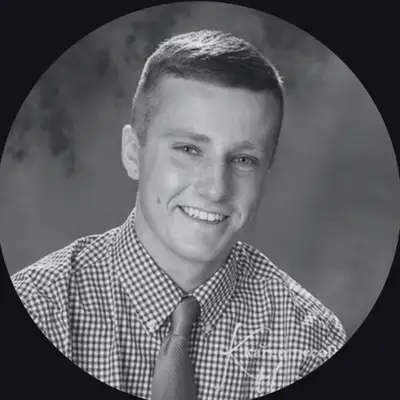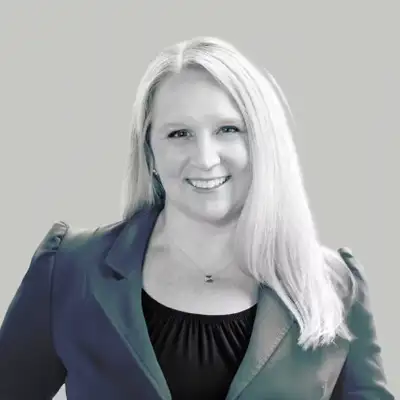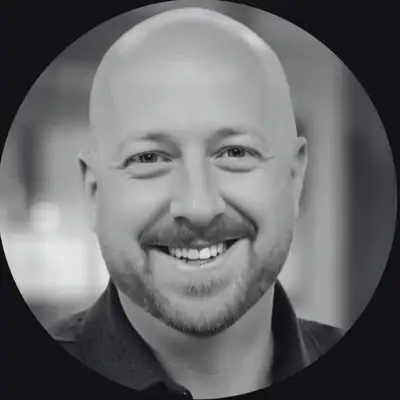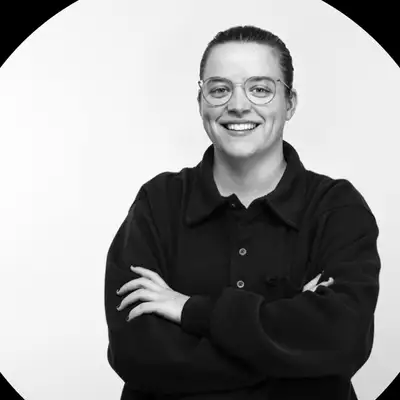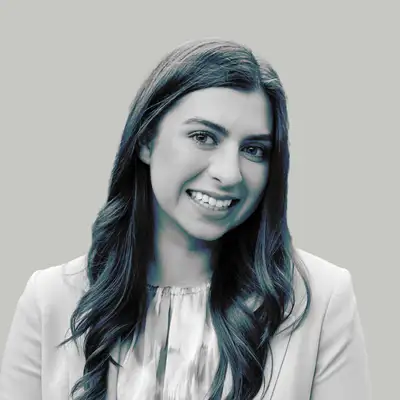#44 - Meet the Start-Up Bringing AI to Town Infrastructure
Sam Herrick:
Do you ever wonder how all those potholes get fixed nowadays? A company using AI has figured out a modern way to do it.
Daniel Pelaez:
We observed, I observed in one of my first jobs is that there's no good data on the physical world to make the right decisions. There actually is a better solution for these governments. It's really overlooked. It's not like kids are graduating college and jumping out of their seats to go reinvent public works technology. That's not really a sector that people think of.
Mike Collins:
It's how you create value is you take something that is not obvious, not easy to do, and you work your ass off and solve it.
Sam Herrick:
Hi, welcome back to this episode of the Tech Optimist, Meet the Startup. Today, we meet Cyvl.ai, a company who's helping public infrastructure and local governments improve the community's infrastructure.
Today, our host for this episode is going to be Mike Collins, Founder and CEO at Alumni Ventures. He's back. He's in the interview seat. And then our guest, Daniel Pelaez, Co-founder and CEO of Cyvl.ai. And then, you'll hear me. My name is Sam Herrick. I am the guide and editor for this podcast at Tech Optimist.
So a little bit about the interview today. Daniel and Mike really discuss how Cyvl helps these local governments improve and rebuild infrastructure within their sectors. Daniel talks about this massive recurring problem on how all these engineering companies and all these construction companies have a hard time getting correct, accurate, and modern data on the physical world that they live in. So this is where Cyvl.ai comes in.
They have a device that they talk about here later in the interview that can be attached to a car, and all you do is drive, and it scans the environment around you, and then converts that into a digital model for these local governments and engineering firms. It measures cracks, bumps, fallen trees, any faulty signs. It's some really awesome technology. I can't wait for you guys to hear about Daniel speaking about it. And so, yeah, welcome back to this episode and we seriously hope you enjoy. Sit back, relax, and enjoy.
As a reminder, the Tech Optimist podcast is for the informational purposes only. It is not personalized advice and it is not an offer to buy or sell securities. For additional important details, please see the text description accompanying this episode.
Mike Collins:
It's a lonely job my friend.
Daniel Pelaez:
Yeah, I know. And people told me that from the start, so I'm not surprised.
Mike Collins:
Listen, it's all good. I've been doing this for 35 years. You definitely want to develop kind of a cupboard of people that you can talk to.
Daniel Pelaez:
Yeah.
Mike Collins:
And that can take some time, and it changes as your life develops. It's also just, you just learn to deal with shit.
Daniel Pelaez:
Yep.
Mike Collins:
Over time. You just do it enough. And it's like we could have some major crisis or something going on, and it's like I don't even... I've been married for 35 years. The bar for me even talking about it at home now is so high.
Daniel Pelaez:
Yeah.
Mike Collins:
That it's just like that's just another normal day of life, you know, kind of thing.
Daniel Pelaez:
Yep.
Mike Collins:
You do build up kind of calluses and scar tissue. You just got to grind it out. My experience has been... What's helped me is just saying, "Hey, are we 1% better today than we were yesterday? Can I make two or three really good decisions today that move us down the field a little bit?" And it's that kind of compounding that is the most important thing, not the big splashy stuff.
Daniel Pelaez:
Yep. Yep.
Mike Collins:
All right. So welcome to Alumni Ventures and our Tech Optimist podcast. We have another episode today of Meet the Startup. This is Cyvl, one of our 2024 new investments. I'm here with the CEO and Founder, Daniel. I'm going to mispronounce. It's Daniel Pelaez?
Daniel Pelaez:
Pelaez. You're close.
Mike Collins:
Pelaez.
Daniel Pelaez:
Pelaez.
Mike Collins:
Yeah. All right. I'm here with the founder, Daniel Pelaez of Cyvl. Super excited to be an investor. Nice to meet you, Daniel, and welcome to the show.
Daniel Pelaez:
Mike, it's great to be here. Appreciate you having me.
Mike Collins:
All right, so hop in right in. Tell me about Cyvl. What's the elevator pitch?
Daniel Pelaez:
Yeah. Really, our mission as a company is solving infrastructure for the US. So it's something that I'm sure everyone can really get behind. If you just look at our roads, sidewalks, bridges, tunnels, they are in a state of disrespair. The country's investing literally trillions of dollars to fix it. But the problem that we observed, that I observed in one of my first jobs is that there's no good data on the physical world to make the right decisions.
So that's really what we're doing is enabling communities with better data by digitizing their infrastructure very quickly, very easily, and making it very easy to understand where they need to prioritize repairs to rebuild infrastructure for the better. So we're doing that with some 3D mapping sensors that we deploy on vehicles, either through civil engineering firms or through government vehicles themselves.
We 3D map every single centimeter of a roadway, of a sidewalk, identifying cracks in the roads, deficient signs, trees that could be of hazard. And then, we report everything in a very easy to understand digestible fashion for governments to really use in their day-to-day planning operations and capital improvement budgeting as well. So building better infrastructure for towns and cities of the US at the end of the day.
Sam Herrick:
All right. I think everyone who listens to this podcast knows the general rule of thumb on how things go here. So Cyvl spent some time and really invested in a demo video for the technology, and for their company, and for their, you know, just influence and their mantra on why they do business and how they do business. It shows the sensor. It shows how it works. It shows their software that comes along.
So I'm going to play that now. You could see the visual on all of our socials, or you can just listen to it here in podcast form. But then after that, we're going to hop into an ad. And then right after that, we're going to hop back to the interview where Mike starts to talk to Daniel about where they are as a company, Cyvl. So let's hang tight and keep going.
Speaker 4:
Welcome to Cyvl, where we make manual infrastructure assessments a thing of the past. Our nation's infrastructure has been overlooked for a while now, but it isn't too late to start making the necessary changes in the way we manage it. Current methods of infrastructure inspections can be time-consuming, costly, and produce inconsistent and fragmented data. Cyvl has solved these problems. Their proprietary technology that makes infrastructure asset management simple, quick, efficient, and cost-effective.
By using 3D mapping technology and artificial intelligence algorithms, they have developed the perfect solution for any civil engineering firm or government agency. The Cyvl sensor is sent to you in an easily shippable package. Simply mount the sensor to the roof of any vehicle to get started. Once the sensor has been mounted, all you have to do is turn it on and drive around. As you drive, the Cyvl sensor scans the world around you, creating a 3D digital twin of the built environment while capturing high-resolution imagery and laser scan data.
When you've completed collecting data for your project, simply upload everything to Cvyl's secure web-based platform. Then, kick your feet back as the algorithms do all the heavy lifting by processing the data and delivering actionable results. Once the data is analyzed, log into Cyvl's platform to review your results in depth. You can also export all data and integrate it into your favorite geospatial and engineering software.
By leveraging Cyvl's technology, engineering firms are able to gain operational efficiencies, reduce project costs, and deliver better results. Firms can also be awarded more business by being able to submit better, lower-priced bids than their competitor. Reach out today to learn more and set up a demo. Better data, better decisions, better infrastructure. That's what Cyvl is all about.
Matt Caspari:
Hey, everyone. Just taking a quick break so I can tell you about the Deep Tech Fund from Alumni Ventures. AV is one of the only VC firms focused on making venture capital accessible to individual investors like you. In fact, AV is one of the most active and best-performing VCs in the US, and we co-invest alongside renowned lead investors.
With our Deep Tech Fund, you'll have the opportunity to invest in innovative solutions to major technical and scientific challenges, which can have a hugely positive effect on society. Companies that have the potential to redefine industries and create a more sustainable future and deliver significant financial returns. So if you're interested, visit us at av.vc/funds/deeptech. Now, back to the show.
Mike Collins:
And you're an early stage company. Tell me a little bit about where you are in your journey.
Daniel Pelaez:
Yeah, so early stage. I don't know if there's any metrics that really define what that is, but we are now three years into our journey, went full-time on this in 2021, and fiddled around a little bit. That was right after graduating college. Started generating real revenues in 2022. And here we are today. We've already worked with over 200 towns and cities across the US, pushing close to 300 by the end of this year.
Really, just all done in the last year and a half, and working with about a couple dozen large civil engineering firms across the US as well. So yeah, we've been able to scale up a little bit. Certainly, there are thousands and thousands of municipalities and governments that we can be helping out at the end of the day, but we're seeing some good traction for about 20 employees based here in Boston, Massachusetts.
Mike Collins:
Excellent. Tell us a little bit about the origin story. I mean, you're on the younger end for being a founder, entrepreneur. Tell me a little bit about how Cyvl came to be.
Daniel Pelaez:
Yeah, I think personally it's a fun story. So it goes back to after my freshman year of college, I did not have a cool internship. I was just working a manual labor job at the local public works department in Southbury, Connecticut, one town over where I grew up. And I was just one of the folks that was driving a pickup truck starting at 6:00 A.M. every day, finding things that are broken. That was a job. Drive around, find things that are broken, fill potholes, fix signs, cut down trees. That's it.
And I remember asking the director, "Do we have a better way to prioritize how we're going about things and maybe there's a list." He said, "No, Daniel, there's no way to track these things. Things just break, someone calls, and we go after fixing it, but we wish there was a better way." And kind of went back to school. I was studying electrical engineering at Worcester Polytechnic Institute in Massachusetts. I was learning about self-driving cars, and robotics, and computer vision, and low cost LiDAR sensors and cameras to achieve this for autonomy.
And just started to think I had that experience in the back of my mind, started to realize what this technology could do, how far research and investment in these fields has gone, and thought, "I think there actually is a better solution for these governments. It's really overlooked." It's not like kids are graduating college, and jumping out of their seats to go reinvent public works technology. That's not really a sector that people think of.
And yeah, saw it as a big problem to solve, and just kind of caught that entrepreneur startup bug, even though I had no idea what a startup was in undergrad. But fast-forward a couple of years, had some great mentors, did tons of customer discovery when I was still in college. And then, shortly after graduating is when we raised our first small sort of angel around to actually pursue the idea full-time and after we had validated it with tons of towns in Massachusetts.
Mike Collins:
Tell me what you think is on trend. I mean, what are the big tailwinds behind Cyvl?
Daniel Pelaez:
Yeah. Again, with startups, everyone knows a lot of it is just luck, and it's not like we knew this was happening. But when the Infrastructure Bill, the Bipartisan Infrastructure Bill was signed and passed, I believe in 2020 or maybe 2021, that certainly just made the greater public and even the venture community aware as major dollars were going towards fixing this massive, massive problem. And there really was no good way to do it. So that definitely helped just build awareness.
Because I remember in undergrad in college, we would talk to angel groups and they'd say, "Public works departments and roadway infrastructure. Why do we care about that? I want a SaaS platform that has nothing to do with the physical world." That changed a little bit, and I think everyone has seen the last few years trends of venture, people are not really scared of big hairy problems that have to do with the physical world anymore.
Sam Herrick:
Okay, I want to add some info on the Bipartisan Infrastructure Deal and the bill that Daniel brought up here on how it really sort of helped streamline the success of Cyvl. So an article came out published by The White House at whitehouse.gov on November 6th, 2021 from the Briefing Room, and I'm going to talk about a few things from that.
So, "Today, Congress passed the Bipartisan Infrastructure Deal, a once-in-a-generation investment in our nation's infrastructure and competitiveness. For far too long, Washington policymakers who celebrated "infrastructure week" without ever agreeing to build infrastructure. The President promised to work across the aisle to deliver results and rebuild our crumbling infrastructure. After the President put forward his plan to do exactly that and then negotiated a deal with Members of Congress from both parties, this historic legislation is moving to his desk for signature."
So some highlights in that legislation to some of the goals or the goals of this bill are to, deliver clean water to all American families and eliminate the nation's lead service lines, ensure every American has access to reliable high-speed, internet repair, and rebuild our roads and bridges with a focus on climate change mitigation, resilience, equity, and safety for all users, improve transportation options for millions of Americans, and reduce greenhouse emissions through the largest investment in public transit in US history, upgrade our nation's airports and ports to strengthen our supply chains, make the largest investment in passenger rail since the creation of Amtrak, build a national network of EV chargers, upgrade our power infrastructure, make our infrastructure resilient against the impacts of climate change.
There's a bunch of really cool goals in this that we probably should look now three years later and see how much progress they've made. But Cyvl probably could tell us how much progress they've made because of this bill. But a little bit more into rebuilding the roads section of this bill. "In the United States, 1 in 5 miles of highways and major roads, and 45,000 bridges are in poor condition. The legislation will reauthorize surface transportation programs for five years and invest $110 billion in additional funding to repair our roads and bridges and support major transformational projects. The Bipartisan Infrastructure Deal makes the single largest investment in repairing and reconstruction our nation's bridges since the construction of the interstate highway system. It will rebuild the most economically significant bridges in the country as well as thousands of smaller bridges. The legislation also includes the first ever safe streets and roads for all program to support projects to reduce traffic fatalities, which claimed more than 20,000 lives in the first half of 2021."
Daniel Pelaez:
So we're still a data analytics software company at the end of the day. There is a hardware aspect which is enabling the connection of the physical world to the digital world. Software has eaten the world as everyone knows. That's been the trend over the last 20 years. But what someone said that I really like is, "That's really already happened, but hardware is really what gives software the ability to sink its teeth into something meaningful." And I see that as kind of the next trend that is gaining popularity, and maybe we were towards the beginning of that.
Mike Collins:
I just want to agree with you on that is I think there's much more open-mindedness now to other sectors.
Daniel Pelaez:
Mm-hmm.
Mike Collins:
Again, going way back in time. It was three segments of the society were venture backable, right?
Daniel Pelaez:
Yeah.
Mike Collins:
Software. And now, it's more and more sectors, more and more niches, public sector, private sector.
Daniel Pelaez:
Yep.
Mike Collins:
Defense. Hardware and software I think is now viewed as a positive, you know?
Daniel Pelaez:
Yep.
Mike Collins:
Hard things are viewed much more as a positive. It's how you create value is you take something that is not obvious, not easy to do, and you work your ass off and solve it.
Daniel Pelaez:
Yep. Yep.
Mike Collins:
And people said the same thing, Daniel, about my approach to venture capital was to deal with, be a co-investor, only go after retail customers. And people go, "That's so hard to raise." And we've raised coming up on a billion five.
Daniel Pelaez:
Yep.
Mike Collins:
From individuals. They said, "Oh, just go get it from the likely suspects." But then, you're like 3000 other venture firms so...
Daniel Pelaez:
Yep.
Mike Collins:
The fact that you're doing something that is physical, dealing with government. It's hard.
Daniel Pelaez:
Yep.
Mike Collins:
Go solve hard shit. I mean, I'm all for it. So congratulations to you.
Daniel Pelaez:
That's what our team just loves most. We're talking about what makes a good employee. Our employees are not scared to solve these big, massive, hard problems. There are unknowns too at the end of the day. But if we're successful, there's just such massive opportunity also just for impact in the communities we live in, like real world impact. We're solving real world problems here. They are hard as hell. But if slash when we figure that out, it's really going to be pretty special and really be differentiated and valuable too at the end of the day. So hopefully, something everyone can get behind.
Mike Collins:
And listen, I think it's one of the reasons we see young people being successful entrepreneurs.
Daniel Pelaez:
Mm-hmm.
Mike Collins:
You know, this is a question I get a lot. And obviously, you have great entrepreneurs who start companies at kind of every age, and stage, and background.
Daniel Pelaez:
Yep.
Mike Collins:
But doing hard things takes a bunch of energy. And frankly, it takes a bit of being open-minded, and not being like, "Oh, this failed in 1999, and so it's going to fail again." So it's like the energy of youth, the open-mindedness of youth shows you the importance of that versus kind of experience.
Daniel Pelaez:
Yep.
Mike Collins:
So an ask, we have a big community of people who have invested in our funds and a lot of other entrepreneurs. How could people help Cyvl help your company, Daniel? What's your ask?
Daniel Pelaez:
I guess one ask would just be, if you're involved with your local government, and you really do care about the decisions they make, and honestly building a better community, quality of life for everyone at the end of the day, I push them to be at least aware of what else is out there for them to gather data on the critical infrastructure assets on their roads, on their sidewalks. And if Cyvl is one of those options, I think just building awareness. Because these government agencies, I know a lot of people like to poke fun at them and say, "They're slow. They don't know what they're doing." But they truly have super limited resources. They're understaffed. They're really trying their best.
So it's hard for them to go out and do research and even figure out what they need to do. I'd say that would be one ask. If you're involved, at least help make them aware as to how they can be running a better city or town at the end of the day. The other ask I would say is, I love to learn all the time. If anyone has started a company working with governments, local government before, and you had some level of success, I would just reach out, would love to chat, and just hear about your experiences. One of my favorite things to do as a founder is hear from people that they've succeeded, maybe they've failed as well, and see how I can do a little bit better with my business at the end of the day.
Sam Herrick:
One more ad, and then we're going to wrap up the episode. Hang tight.
Speaker 6:
Do you have a venture capital portfolio of cutting edge startups? Without one, you could be missing out on enormous value creation and a more diversified personal portfolio. Alumni Ventures, ranked a top-twenty VC firm by CB Insights is the leading VC firm for individual investors. Believe in investing in innovation? Visit av.vc/foundation to get started.
Mike Collins:
Excellent. And last question, Daniel, which is, what have you learned personally, having jumped in kind of to the deep end right away?
Daniel Pelaez:
Yeah.
Mike Collins:
What has been a surprise to you?
Daniel Pelaez:
A surprise? I think I learned this pretty quickly early on, and it was funny. I was hearing Jensen from Nvidia talk about this the other day. And I was like, "Oh, yeah. I had the same sort of feeling." But it's just as the company continues to be more and more successful, it really doesn't get easier. I think in the early, early days I thought, you know, "Once we hit this, we have this milestone, or this number of employees, this much of revenue or funding, it'll get easier." But in reality, it just kind of keeps getting harder. And I think we were talking before, you just start getting numb to it. If I knew from day one the problems I'll be solving three years into it... I mean, that's what helped with being a young founders. You're pretty naive to everything that can happen.
Mike Collins:
Yeah.
Daniel Pelaez:
So I think that was a little bit of a surprise, but it's now something that you just know is reality. The more successful you are, honestly, the harder it's going to get. But honestly, in a little bit of a fun way. If you don't enjoy pain a little bit as a founder, you're probably in the wrong line of work.
Mike Collins:
Yeah. No, it's finding that sweet spot of being challenged, but feeling that you... And there are definite days as a founder where it's like, "Oh, shit." Right? Kind of thing. But usually, you get a good night's sleep, and you get with your team, and you just start tackling the problems.
Daniel Pelaez:
Yep.
Mike Collins:
You'll develop those muscles, and those calluses, and your network of... I think the job is always hard.
Daniel Pelaez:
Yep.
Mike Collins:
And it is a damn hard job being an entrepreneur. And I think there are people that have done it, that get it. And if you haven't done it, you don't fully appreciate how hard it is.
Daniel Pelaez:
Yeah.
Mike Collins:
But it is also very, very rewarding.
Daniel Pelaez:
Yep.
Mike Collins:
And I think it's awesome. You're taking the journey. We're super excited at Alumni Ventures of being a supporter of the company. Again, encourage our audience to reach out. Again, young companies need customers. So if you have somebody that might be interested in looking at the product, please reach out. We'll put things in the show notes. Again, other entrepreneurs in our network that have sold into municipalities have some tips. Again, reach out. And so, thanks for your time. We look forward to following Cyvl and your progress. And keep up the great work, Daniel.
Daniel Pelaez:
Awesome. Appreciate it, Mike. And yeah, the support that Alumni Ventures has given us so far, it's really been tremendous. So appreciate, appreciate everything you guys have been doing for us so far.
Mike Collins:
Excellent. All right. Have a good week, Daniel. Thank you.
Daniel Pelaez:
Thanks, Mike.
Mike Collins:
Super.
Sam Herrick:
Thanks again for tuning into the Tech Optimist. If you enjoyed this episode, we'd really appreciate it if you'd give us a rating on whichever podcast app you're using, and remember to subscribe to keep up with each episode. The Tech Optimist welcomes any questions, comments, or segment suggestions. So please email us at info@techoptimist.vc with any of those. And be sure to visit our website at av.vc. As always, keep building.
